In a recent foreign policy address, Pope Francis once again signaled his commitment to the prominent themes of a plan by the globe’s most powerful entities to leverage the carnage of the COVID-19 pandemic to establish a global economic system that would formally position the world’s largest corporations as the keepers of society.
“Pope Francis urged governments on Monday to use the coronavirus crisis as a revolutionary opportunity to create a world that is more economically and environmentally just – and where basic health care is guaranteed for all,” AP reported.
The Pope’s annual Holy See foreign policy address focused largely on the theme of harnessing COVID-19 destruction as a means of implementing progressive political policy, and a new global economic order.
In addition to pushing “the right the right!” of universal healthcare, Pope Francis also referred to the current “economic and social crisis” as evidence that the world is in need of a global economy focused on the “social significance of economic activity.”
“The resulting economic crisis has highlighted another illness of our time: that of an economy based on the exploitation and waste of both people and natural resources.”
“The current crisis thus provides a helpful opportunity to rethink the relationship between individuals and the economy. There is need for a kind of ‘new Copernican revolution’ that can put the economy at the service of men and women, not vice versa. In a word, ‘a different kind of economy: one that brings life not death, one that is inclusive and not exclusive, humane and not dehumanizing, one that cares for the environment and does not despoil it”.
“Common and shared initiatives are also needed at the international level, especially to support employment and to protect the poorest sectors of the population. I consider to be significant in this regard the commitment of the European Union and its member states. Despite difficulties, they have been able to demonstrate that it is possible to work diligently to reach satisfactory compromises for the benefit of all citizens. The allocation of funds proposed by the Next Generation EU recovery plan can serve as a meaningful example of how cooperation and the sharing of resources in a spirit of solidarity are not only desirable but also achievable goals.”
The Pope’s language is in line with that of the World Economic Forum’s plan for a global Great Reset, which uses the pandemic as a catalyst for a plan that “positions private corporations as trustees of society.”
The plan would put the “financialization of the world” we see today “into reverse,” in part by forcing businesses across the globe to “adapt to greater government intervention.” The Reset’s “partner” list is made up of the world’s favorite multinational corporations like Apple, Toyota, Google, Facebook, Visa, The New York Times, and Pfizer. These companies have signed onto the plan to integrate Big Government and Big Business.
WEF’s Covid Action Platform insists that “Only coordinated action by business, combined with global, multi-stakeholder cooperation at exceptional scale and speed can potentially mitigate the risk and impact of this unprecedented crisis.”
WEF Chairman Klaus Schwab’s 2020 book titled “COVID-19: The Great Reset” details a vision of “the return of ‘big’ government.”
Schwab notes that the role of the state has “shrunk considerably” in the Western world, but says this is “set to change” because “it is hard to imagine how an exogenous shock of such magnitude as the one inflicted by COVID-19 could be addressed with purely market-based solutions.”
“Already and almost overnight, the coronavirus succeeded in altering perceptions about the complex and delicate balance between the private and public realms in favour of the latter,” write Schwab and co-author Thierry Malleret. This shift is something that Schwab has been pushing for at WEF for years. His Reset plan addresses the pandemic as a unique opportunity to lead humanity to “rethink governments’ role.”
The Pope’s language in his recent address directly mirrors the language of WEF and their “stakeholder capitalist” allies. But the connection between the Pope and this vision for an international government-corporation conglomerate need not be left up to speculation.
In December, Pope Francis joined forces with the Rothschilds to “reform capitalism.” In addition to having the shared mission of establishing a new order of “stakeholder capitalism,” the Council for Inclusive Capitalism with the Vatican has a corporate partner list that overlaps substantially with the WEF. Mastercard, Alianz, Johnson & Johnson, Visa, and Bank of America can be found on both lists, for example.
The post Pope Attempts to Blend Christian Church with Marx’s Socialism in Policy Address appeared first on Human Events.
© Copyright 2021 HUMAN EVENTS. All Rights Reserved.
—-
This content is published through a licensing agreement with Acquire Media using its NewsEdge technology.



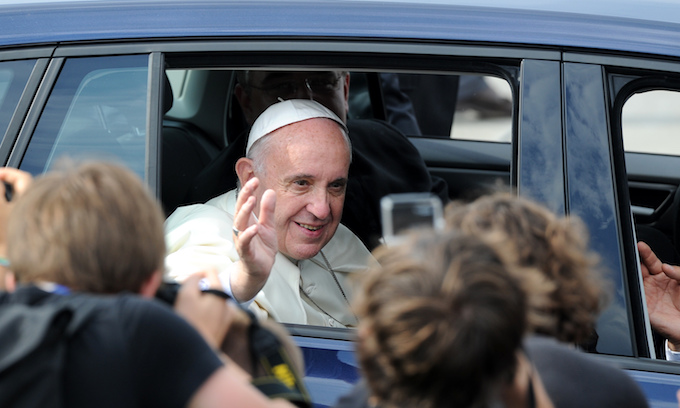
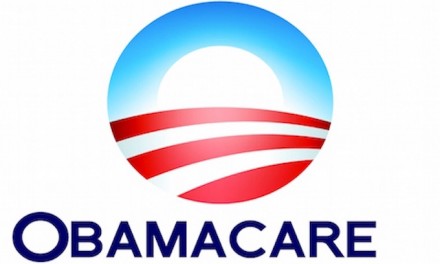







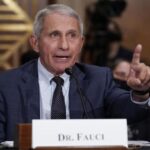

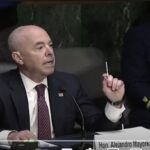

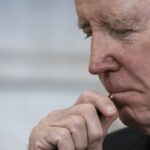
I personally do not put much credit in the pope. I believe in, love and worship ONLY the Lord GOD Almighty YHWH and his Son Jesus Christ.
I only believe in what is in the Holy Bible and what GOD tells me.
The religions of man have become just that, “religions of man” created by man. They have become political and do not follow or teach what the Bible says.
John 14:1
I Am the Way, and the Truth, and the Life
1 “Let not your hearts be troubled. Believe in God; believe also in me.
This pope has shown some more of his colors, he is more communistic than people really know, by him standing with and behind the tech companies he has indicated that those of money should be the ones controlling our lives well that just is not right this guy is going to lead his entire church right into the hands of the devil.
Once upon a time, the Catholic church was a powerful political force in the world. This is an attempt to reclaim that power.
This pope is NOT a Christian.
No, this is an attempt to destroy the Holy Roman Catholic Church. Every communist regime for over 100 years has marginalized if not straight up forbade the Church. The Cardinals need to convene and do something about this man.
This Pope is a faux Christian and a fraud. He sounds more like the chairman of the DNC or the CCP
What I wouldn’t give to see after this fake Pope dies and he is strapped to a cross directly across from Jesus with his and Jesus’s nose an 1/8 of an inch away from each other looking eye to eye for the judgment. PRICELESS!!
Well since his unholiness the Pope is every bit as much of an unmitigated Communist hypocrite as Karl Marx and Vladimir Lenin this shouldn’t come as a big surprise to anyone.
Hell, i say if he wants to ensure more folks get health care.. FINE.. OPEN YOUR bloody vaults up, and GIVE OF YOUR OWN MONEY!!!
The Popes themselves do not have money or control over the Churches finances.
The New World Order, open borders communist Pope. The communist Pope should certainly be the CEO of the New World Order and he can have the New World Order Bushes, as his executive Vice Presidents. The New World Order Pope, will have no problem with the communist “sheep” Democrats, blindly following the communist Pope over a cliff. Oh, how nice and cozy!
Well he is turning out to be the black pope.
We knew this Pope was a liberation theology advocate when he was selected. This push for a one-world communist government will thrive in many governments and the Catholic Church until Jesus returns.
He’s not the pope. BUT a steaming pile of POOP>
Could be the false prophet or even the antichrist.
Um…With apologies to all Catholics I think it’s time for the birds to get together in the Vatican and see about getting some white smoke coming from that fireplace. This clown pope is straight out of a Communist re-education program.
“positions private corporations as trustees of society.”
Whew! That was close. I was just on the verge of accepting your, once popular, premise that (American owned) corporations were the big Satan.
I suppose all those do good’er corporations will need protective walls?
And shadowrun teams, to do their bidding!
I read a book called “A Divine Look Into Hell” by Mary K. Baxter, who was Catholic. In her book she stated there is a special place in hell for the phony clergy. This pope will sure wish he had some of Pelosi’s high dollar ice cream where he’s going.
This guy needs to shut up. he is in for a big surprise on judgement day.
The Pope was a Jesuit priest, the most liberal faction of the church. He was raised in a communist country. He is placing salvation of societal problems in the hands of imperfect business people rather than in God. The Pope should know that the road to hell is paved with good intentions. The Pope should know that another alleged Catholic, puppet Joe Biden just threw 11,000 people out of work and made them dependent on ‘the state’ and Pelosi is nearer the ‘devils disciple’ than a practicing Catholic.
Yep, Jesuits have caused more political and social unrest throughout history than one can know. They are the Marxists of the Catholic church.